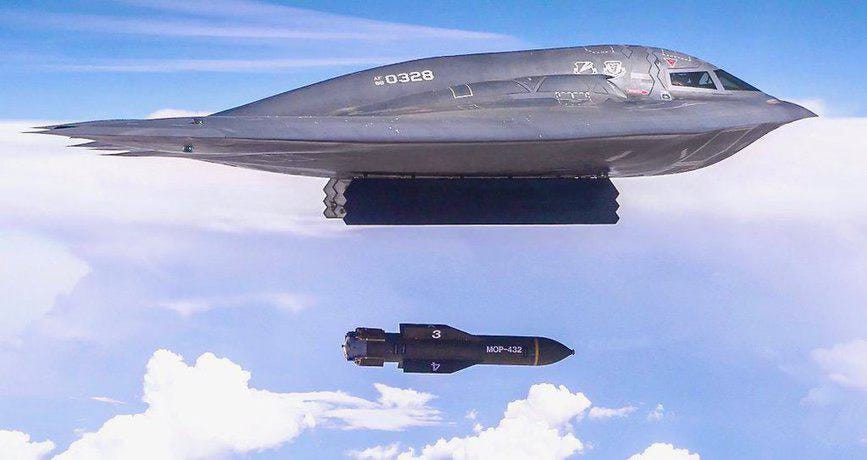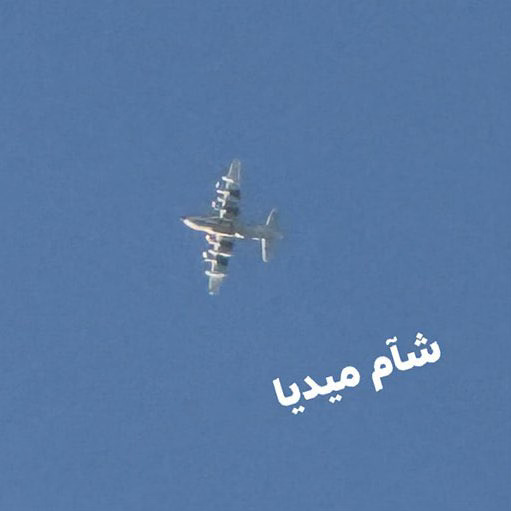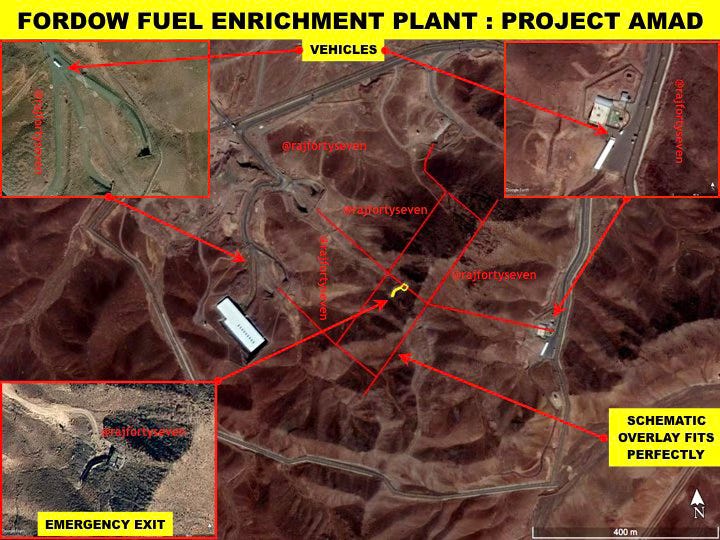First, and most obviously there is the question of whether the Israelis can do it on their own, using airpower. This same conundrum applies to underground storage facilities at Esfahan and elsewhere believed to house Iran’s stock of uranium enriched to 60%. The conventional wisdom is that the Israeli air force lacks bombs powerful enough to penetrate these deep targets. There’s much talk today about the American GBU-57 Massive Ordnance Penetrator (pictured above) but it’s pretty clear that this 15 tonne monster is too big to fit on any Israeli Air Force jet.
So, what are the other options here? It’s conceivable that the Israelis may have secretly produced some penetrator weapon of similar power. There’s also been some talk - shades of blowing up the Death Star – that Fordow has an Achilles heel, a ventilation shaft that could provide a pathway for a bomb.
If either of these two options were viable, I suspect we would already have seen them used.
Some experts, like David Albright, an American academic who’s spent many years looking at Iranian nuclear sites reckon, “Israel doesn’t need the United States to come in with bunker busters and destroy it… Israel can do it on its own”.
He believes that by knocking out power, ventilation and other support services the centrifuges inside could be stopped and damaged. Albright notes that Israel hasn’t done this yet, and that’s puzzling.
In truth these methods of air attack offer Israel a chance to disrupt work at Fordow, but in a way that would slow it up for months or maybe a year.
Second, there is some chance that Israel may mount a ground operation to deal with this and possibly some other deep buried Iranian sites. I think there are a couple of interesting indicators in this context. The first is that its 98th Division, combining the bulk of the IDF’s airborne, commando, and special operations units, was withdrawn from combat in Gaza last week.
Another thing that caught my attention is that Israeli C130 aircraft have been seen over northern Syria (see pic), heading back, it’s thought, from Iran to Israel. These could have been operating in several different roles, from refuelling other planes (don’t rule out the IAF having taken over an airstrip in a neighbouring country as a forward refuelling point) or bringing out special operators who’ve been on the ground in Iran.
The point is though, that having battered much of the air defence system into submission, the environment is now sufficiently ‘permissive’ for these big transports to be operating, sometimes even in daylight over Iran. Dozens of flights would be needed to take in a Fordow assault force but that’s now looking feasible.
Lastly, and going back to the point about why the IAF hasn’t bombed the tunnel entrances into this complex yet, doing so would of course impede the entry of your own ground assault force.
It should go without saying that this would be a very dangerous option, with potential for high casualties. But if equipped with heavy demolition charges, the effects of which would be amplified in those deep caverns, they might wreck the complex comprehensively.
Third option, which I call the ‘water cooler favourite’ because it’s something that the instant experts have gravitated towards, is that the US hits Fordow and other deep buried facilities with the combination of B-2 bomber and ‘MOP’ penetrators.
These would undoubtedly do a more destructive job than the bombs that we know to be in the Israeli inventory. But there’s been an online debate about whether its widely quoted 60m or 200ft penetration capability would be enough for this Iranian nuclear site which is thought to be protected by 80-90m of solid rock. Might it be possible, commentators ask, to drop one of these huge bombs after another to pummel a way into that facility?
My instinct about the GBU-57 is that it could do more damage than Israeli bombs, not least by striking further along the access tunnels into the site, caving in a greater amount of rock and thus delaying any rebuilding or repair work for longer.
There are though two salient points about this; the first being that it requires a decision by Donald Trump to enter the war and that this is also about slowing down Iran’s programme, albeit by far longer than some of the other options, rather than stopping it.
Fourth comes diplomacy. That’s the only way to make sure that this becomes a permanent cessation of activity. I think it’s interesting to look in this conflict at what the two sides haven’t done, as well as what they have. In that context, note that Iran has not expelled International Atomic Energy Authority inspectors or withdrawn from the Non-Proliferation Treaty.
So, a mechanism remains in place for verification of anything agreed in talks to end this war. Consider now also that there are reports about the Iranians meeting UK, French and German diplomats in Geneva soon. Apparently, those US allies (known as the E3 during previous Iranian nuclear negotiations) have agreed their position with the Trump administration.
Of course Trump has repeatedly urged Iran ‘back to the table’ or said it’s not too late to ‘make a deal’. This has to be an appealing option for so many reasons.
It’s not a slam dunk because we don’t know whether the two belligerents would sign up: would Netanyahu accept it was a comprehensive enough agreement to satisfy Israel’s security needs? And would Iran agree to more severe restrictions on its nuclear activities than ever before? So far, Ayatollah Khamenei, the Supreme Leader, is ruling out any capitulation.
There are many variables then, but I won’t unpack the question of whether the warring parties might be ready to deal, of the possible shape of a settlement, until we know that the diplomacy is gaining some real traction.








Diplomacy sounds like the ideal answer but will Iran, like Russia and China, play by the rules? I think the answer to that is no. Equally, will Israel stick to any agreement that leaves the door open for its destruction by Iran. I think not. Whatever the outcome I believe Iran will come off worst.
From a British point of view Keir Starmer could learn a thing or two from Harold Wilson. As Prime Minister, Wilson avoided direct military involvement in the Vietnam War, even though he did offer political support to the US. Despite pressure from both the US to join the war and from within his own party to stay out, Wilson ultimately chose to remain neutral. This raises a question for Reform: how will Nigel Farage respond if President Trump initiates an attack on Iran, if Starmer follows Wilson’s plan?